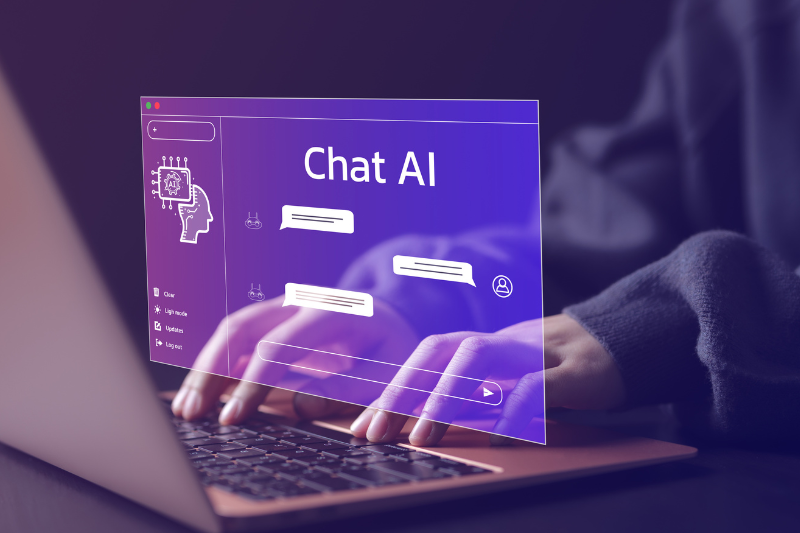AI for Content Creation
Artificial Intelligence (AI) has transitioned from a futuristic concept to a tangible force that’s reshaping the world of content creation. For content creators, marketers, and small business owners, AI offers the ability to automate tasks, generate high-quality content, and scale operations without compromising quality. But how can you practically integrate AI into your content strategy?
In this guide, we’ll explore how AI can revolutionize your content efforts, the tools available, and actionable steps to get started.
Understanding AI in Content Creation
Generative AI for Content
Generative AI is at the heart of AI-driven content creation. But what does that mean? Simply put, generative AI refers to algorithms that can create new content based on input data. This could be anything from text and images to audio and video.
Text Generation
One of the most common uses of AI in content creation is generating text. AI tools like GPT-4 can craft blog posts, social media captions, and more by analysing language patterns. Small businesses can provide key points, and the AI generates drafts, saving hours of writing time while ensuring consistency.
For example, a small business owner could use AI to create a series of blog posts on a specific topic. By providing a few key points or a brief outline, the AI can generate a full draft, saving hours of writing time.

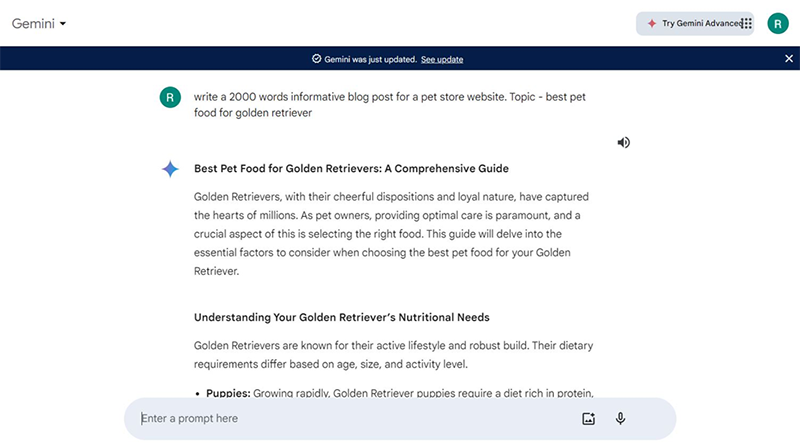
Image Generation
AI isn’t just for text; it can also generate images using tools like DALL-E. This is particularly useful for content creators who need custom visuals but lack the resources to hire a graphic designer. Whether it’s creating product images, social media graphics, or even illustrations for a blog post, AI can generate high-quality visuals that align with your brand’s aesthetics.
Audio Generation
AI’s reach extends into audio content as well. Voiceover tools like Descript and AI music composition software can create podcast episodes, voiceovers, and even background music. Small businesses can enter the audio content arena without the heavy investment typically required for production.
AI-Powered Copywriting
Copywriting is one of the most critical aspects of content creation, and AI is making it easier than ever to create compelling, optimised content.
Keyword Research and Optimisation
SEO is a cornerstone of content marketing, and AI tools are incredibly effective at identifying relevant keywords and optimising content for search engines. Tools like Surfer SEO and SEMrush use AI to analyse search trends, competition, and user intent, providing you with the keywords that will give your content the best chance of ranking.
Content Ideation
Stuck on what to write about? AI can help. Tools like Copy.ai can generate content ideas based on your industry, target audience, and even your past content. This isn’t just about saving time—it’s about uncovering new angles and ideas that you might not have considered otherwise.
Tone and Style Adjustment
One of the challenges in content creation is maintaining a consistent tone and style, especially when creating content for different platforms or audiences. AI tools can help by adjusting the tone and style of your content to match your brand voice or the preferences of your target audience. For example, an AI-powered copywriting tool might suggest changes to make your content more formal for a business blog or more casual for social media posts.
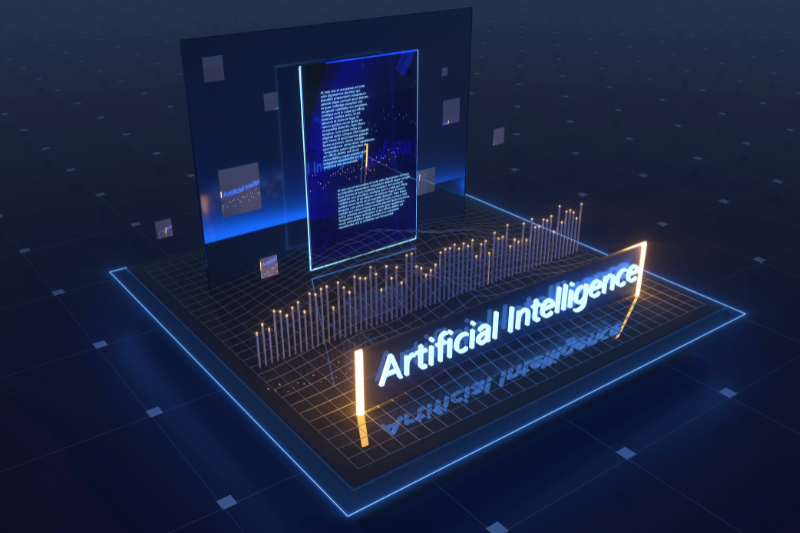
Content Automation with AI
Automation is one of the biggest advantages of using AI in content creation. By automating repetitive tasks, you can focus more on strategy and creativity.
Social Media Management
Managing multiple social media accounts can be time-consuming. AI tools like Buffer and Hootsuite automate scheduling, posting, and even engaging with your audience. This ensures that your social media channels are active and consistent without requiring constant manual input.
Email Marketing
Personalised email campaigns are essential for driving engagement, but creating them can be a daunting task. AI can help by automating the process. Tools like Mailchimp use AI to segment your audience, personalise email content, and even optimise send times. This not only increases the effectiveness of your campaigns but also saves you time and resources.
Data-Driven Content Creation
Data is at the core of effective content marketing. AI tools can analyse your audience’s behaviour, content performance, and market trends to create data-driven content. For example, an AI tool might analyse past blog posts to identify topics that resonate most with your audience, helping you create more of what works and less of what doesn’t.
Download actionable resource to start leveraging AI in your content creation efforts

Practical Applications of AI in Content Creation
Now that we’ve covered the basics, let’s look at best AI tools and how they can be used in content creation.
Best AI Tools for Content Creation
Text-Based AI Tools
- Jasper: An AI writing assistant that helps you create everything from blog posts to ad copy.
- Grammarly: A tool that not only checks grammar but also offers suggestions to improve clarity, tone, and engagement.
- Surfer SEO: Combines SEO with content writing by analysing what ranks on Google and helping you optimise your content accordingly.
Image and Video Creation Tools
- DALL-E: Generates custom images based on text descriptions.
- Lumen5: An AI-powered video creation tool that turns blog posts into engaging videos.
- Canva: While not entirely AI-driven, Canva uses AI to suggest design elements and layouts, making it easier to create professional-looking graphics.
Audio and Podcasting Tools
- Descript: An AI tool for podcasting that allows you to edit audio as easily as text. It even includes AI-generated voices.
- AIVA: An AI music composer that creates original soundtracks for your videos or podcasts.
AI Content Workflow Tips
To get the most out of AI in content creation, you need to integrate it into your workflow effectively.
Defining Clear Goals
Before using AI, define what you want to achieve. Are you looking to increase content output? Improve SEO? Enhance personalisation? Clear goals will guide your use of AI tools and help you measure their success.
Choosing the Right AI Tools
Not all AI tools are created equal. Choose tools that align with your specific needs. For example, if you’re focused on SEO, tools like Surfer SEO are invaluable. If you need help with design, Canva or DALL-E might be more appropriate.
Effective Prompts
AI is only as good as the input it receives. When using generative AI tools, craft clear and specific prompts to get the best output. Instead of a vague prompt like “write a blog post,” try “write a 500-word blog post on the benefits of using AI in content creation, focusing on small businesses.”
Human-AI Collaboration
AI is a tool, not a replacement for human creativity. Use AI to handle the repetitive tasks, but always add your personal touch to ensure the content aligns with your brand and resonates with your audience.
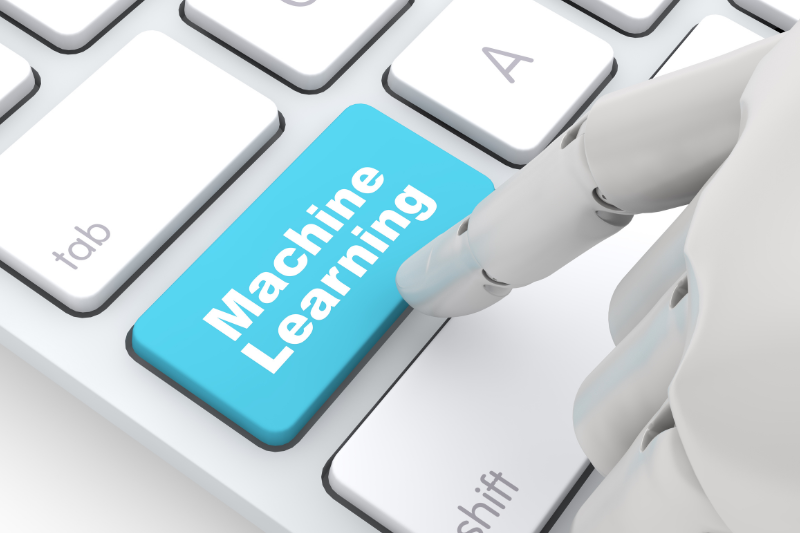
Machine Learning in Content Marketing
Machine learning, a subset of AI, plays a critical role in enhancing content performance.
Predictive Analytics
Machine learning algorithms can predict how your content will perform based on historical data. For example, an AI tool might analyse past blog posts to determine which topics are likely to perform well in the future. This allows you to create content with a higher likelihood of success.
Audience Segmentation
Creating tailored content for different audience segments is crucial for effective marketing. Machine learning can analyse your audience data and segment it based on behaviour, demographics, or preferences. This ensures that your content is not only relevant but also personalised, increasing engagement and conversion rates.
A/B Testing
Optimising content through A/B testing can be time-consuming, but AI simplifies the process. AI tools can automatically test different versions of content, analyse the results, and suggest the most effective option. This allows you to continuously improve your content without manually tracking every variable.
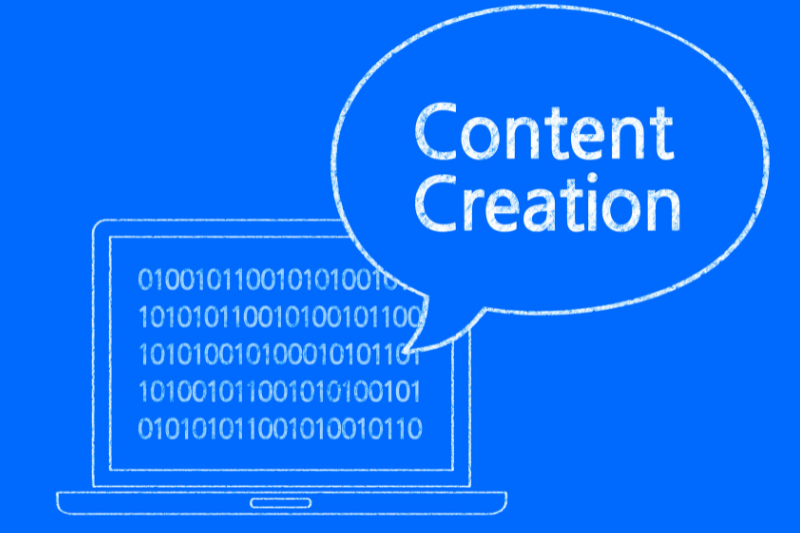
AI-Driven Content Strategy
A successful content strategy isn’t just about creating content—it’s about creating the right content at the right time.
Creating a Data-Driven Content Calendar
AI can help you plan and schedule your content more effectively. By analysing past performance and predicting future trends, AI tools can suggest the best times to publish content and the topics that are likely to resonate with your audience.
Personalisation with AI
Personalisation is key to engaging your audience, and AI makes it easier than ever. By analysing user data, AI can help you create personalised content that speaks directly to individual preferences and behaviours. For example, AI can suggest personalised product recommendations in an email or tailor blog content based on the reader’s past interactions with your site.
Measuring and Optimising AI Content
Once your content is live, AI doesn’t stop working. It tracks performance metrics, like engagement, conversion rates, and social shares, to provide insights into what’s working and what’s not. This data-driven approach allows you to make continuous improvements and optimise your content strategy for better results.
Download actionable resource to start leveraging AI in your content creation efforts

Challenges and Considerations
While AI offers many benefits, it has significantly changed the content creation landscape, offering tools that can generate, optimise, and automate content across various formats. However, alongside these advancements come challenges and considerations that content creators, marketers, and small business owners need to address.
Creativity and Originality
One of the most common concerns is that AI-generated content may lack the creativity and originality of human-made content. While AI can produce well-structured and grammatically correct content, it operates based on patterns and data it has learned. This means it might struggle with producing truly unique ideas or nuanced creative expressions.
For small businesses and marketers, the solution is to use AI as a complementary tool rather than a replacement. AI can handle repetitive tasks and content generation at scale, but the creative direction, storytelling, and unique brand voice should come from humans. By blending AI’s efficiency with human creativity, you can maintain originality while benefiting from AI’s capabilities.
Accuracy and Relevance
Another challenge is ensuring the accuracy and relevance of AI-generated content. AI models are trained on vast amounts of data, which can include outdated or incorrect information. Without careful oversight, there’s a risk that AI might generate content that is factually inaccurate or irrelevant to your audience.
To mitigate this, always review and fact-check AI-generated content before publishing. Additionally, providing AI with up-to-date and relevant data inputs can help improve the accuracy of its output. For example, when using AI tools for keyword research, ensure that the data is current and aligns with your content strategy.
Personalisation
AI is powerful in creating personalised content, but this comes with the responsibility of balancing personalisation with privacy and ethical considerations. Consumers are increasingly concerned about how their data is used, and misuse can lead to mistrust.
Overreliance on AI
There’s a temptation to over-rely on AI, especially when it offers time-saving benefits. However, overdependence can lead to generic content and a loss of human touch. AI should be viewed as a tool that enhances your capabilities, not one that takes over completely.
Incorporate AI into your workflow in a balanced way. Use it for efficiency, such as automating social media posts or generating content ideas, but always add a layer of human oversight to ensure the content aligns with your brand values and resonates with your audience.
Conclusion: The Future of AI in Content Creation
AI is not just a trend—it’s a transformative force in content creation. It offers unprecedented efficiency, scalability, and personalization, making it an invaluable tool for content creators, marketers, and small business owners. However, it’s important to approach AI with a balanced perspective. While AI can automate and enhance many aspects of content creation, the human element remains irreplaceable.
As AI continues to evolve, we can expect even more advanced tools and capabilities. The future may bring AI that can generate content with greater creativity and nuance or tools that offer deeper personalisation without compromising privacy. For now, the key is to experiment with AI tools, integrate them into your content strategy, and use them to complement your creative efforts.
Whether you’re a small business owner looking to scale your content production, a marketer aiming to enhance your campaigns, or a content creator seeking new ways to innovate, AI offers powerful solutions. Embrace it, experiment with it, and find the right balance that works for you.
So, what’s the next step? Start by exploring the AI tools mentioned in this guide. Test them out, see how they fit into your content creation process, and gradually build an AI-driven content strategy that aligns with your goals. The future of content creation is here—it’s time to make the most of it.






